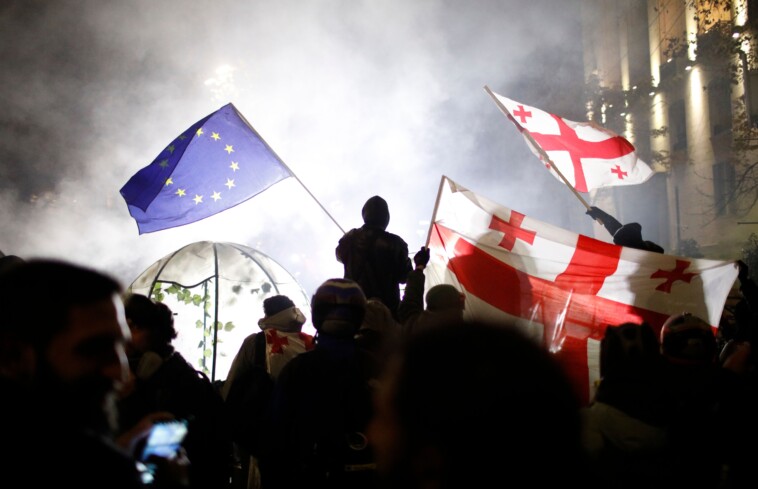Thousands of demonstrators filled the streets of Tbilisi, Georgia, Saturday, building barricades, breaking windows and setting off fireworks outside parliament to protest the government’s withdrawal from talks to join the European Union.
The crowds were met by riot police firing water cannons and tear gas, according to reports.
Protests also erupted in multiple other cities across the former Soviet republic.
The protests were the latest, and biggest, since the anti-Western ruling party was elected last month in a contest that the pro-EU opposition has claimed was fixed.
As the chaos unfolded demonstrators burned an effigy of Georgia’s richest man, the ruling party’s founder Bidzina Ivanishvili, on the steps of parliament, and a small fire, possibly caused by fireworks, briefly burned inside the building.
Prime Minister Irakli Kobakhidze accused the pro-EU opposition of plotting a revolution and the State Security Service said political parties were attempting to “overthrow the government by force.”
The US said that the decision to suspend the process of joining the EU “goes against the promise to the Georgian people enshrined in their constitution to pursue full integration into the European Union and NATO.”
By suspending the process, Kobakhidze’s Georgian Dream party “has rejected the opportunity for closer ties with Europe and made Georgia more vulnerable to the Kremlin,” the State Department said in a statement.
The government’s “various anti-democratic actions have violated the core tenets of our U.S.-Georgia Strategic Partnership,” the statement said, announcing that the US has suspended the partnership.
It urged Georgia to “return to its Euro-Atlantic path,” investigate election irregularities and repeal anti-democratic laws that limit protest.
With Post wires






